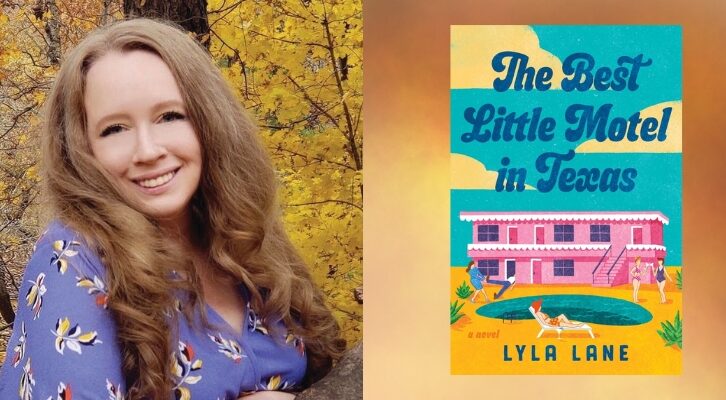
Fighting to Save the Real-Life Pharmacy from James Joyce's Ulysses
Ally Findley on the Historical Importance of Sweny's Pharmacy, Which May Soon Vanish
In the fifth episode of Ulysses, “The Lotus Eaters,” Leopold Bloom stops in to Sweny’s Pharmacy for some face cream for his wife Molly, and, after a sniff, adds a bar of lemon soap to his purchase. In Bloom’s observation, “chemists rarely move”—and Sweny’s, opposite the Lincoln Place end of Trinity College Dublin and around the corner from the birthplace of Oscar Wilde, proves this. Not only is it a real place, like many of those referenced in Joyce’s work, but it still stands today.
In 1847, Sweny’s opened as a doctor’s office; three years later, it transitioned into a chemist (Irish parlance for a pharmacy). One-hundred-and-sixty-two years later, in 2009, it transitioned into a space dedicated to the appreciation of Joyce the writer and the preservation of a space on the map of James Joyce’s Ulysses. Victorian in design and Edwardian in craft, in Sweny’s you still walk on the same wood Joyce and other customers would have while picking up their prescriptions, draughts, and various ointments.
Today, the entirely volunteer-run staff of Sweny’s uses the place to host readings of Joyce’s work in five different languages and to sell second-hand copies of Joyce’s work (and, of course, that famous lemon soap). The volunteers refer to it as “the best community center in Dublin”—one of the few places you can stop in and be offered a cup of tea and be asked for nothing in return except, perhaps, a chat. Readings are free and open to the public, and donations, while appreciated, are optional.
Recently, however, in a turn of events now all too recognizable, the rent has not simply increased but doubled, and the building is up for sale. Because it is run by volunteers, Sweny’s has been raising money on Patreon to cover the increase in rent. The volunteers are in agreement that they don’t want to start charging for readings—exclusivity is antithetical to the spirit of the place, of the community, and of the idea that Joyce wrote for everybody, especially the ordinary person.
Seven or eight people squeezed behind the dark wooden counter of the old chemist shop to chat with me over Skype and discuss their recent fundraising efforts, the heartening support they have received so far, and why preserving Sweny’s is so critical. It’s a colorful cast.
Recently, however, in a turn of events now all too recognizable, the rent has not simply increased but doubled, and the building is up for sale.
The man everyone points me to is PJ Murphy—the original Sweny’s volunteer, who, along with two friends, transformed the space from chemist to Joycean sanctuary-slash-community center in 2009. Seen behind the counter in his white doctor’s coat nearly every day of the week, he charms visitors as the charismatic center of the operation. He speaks ten languages and pulls out his guitar to entertain for a song at the drop of a hat.
Anchoring the call is Jack, chairperson of the volunteer board. Jack has been volunteering at Sweny’s since 2011. A professional actor, he came across Sweny’s by chance after being asked to play Leopold Bloom for an outdoor performance on Bloomsday (which, for the uninitiated, is June 16th, the day the events of Ulysses take place). Prior to that, he’d never read Ulysses in full, so he decided to attend some of the readings. Eight years later, he is now, in his words, “part of the furniture around here.”
Another volunteer, Helena, originally from Portugal and a visual artist, outlines the Patreon campaign to me. Donors agree to sponsor portions of the monthly rent in exchange for benefits, organized into tiers based on the contribution amount. Beside her is Fionnàn, a regular volunteer and Irish whiskey critic, who reached out to his connections in Dublin’s food and drink industry about fundraising opportunities and potential venues, and, with the help of publican Willie Aherne, hosted a whiskey-tasting fundraiser at The Palace Bar—a venue that itself has deep ties to Dublin’s literary history. The former stomping grounds of 1950s greats Flann O’Brien and Patrick Kavanaugh, who celebrated the first Bloomsday in Dublin in 1954, it’s a fitting choice.
In the long term, Sweny’s is seeking a preservation order from the government to receive full protection as a historical site. This will not only help ensure that the structure itself will be preserved; it will also stop the rent from being raised in the future. The team plans, too, to pursue funding from Ireland’s Heritage Council and the Arts Council of Ireland, both dedicated to the preservation of structures that hold historical or cultural significance in Ireland. Because this process will likely take up to two years, the volunteers are continuing their fundraising efforts in the meantime. Beyond this, they are actively searching for universities with which to form partnerships, providing access to the historical resources of Sweny’s for scholars of Irish literature.
*
Sweny’s holds a magnetic pull for artists and writers. By day, Massimiliano Bianchi is an adjunct professor in neuroscience at Trinity College; in Sweny’s, however, he is a poet, and, with PJ’s encouragement, he just published his first book of poetry (fittingly titled Odysseus). Brigid, a fixture at Sweny’s, is an artist who has contributed her work for sale in the shop, modeled after the old photographs they have on the walls. Mitch, an American student volunteering as he studies abroad, holds up the t-shirt he designed, which pays visual homage to various parts of Joyce’s oeuvre. Everyone brings something to the table: art, poetry, practical retail skills, whiskey expertise. These individual connections and skills are the reason fundraising efforts to date have been so successful.
This sense of living history pervades Sweny’s, the sense of the present living happily alongside the ghosts of the past.
And in turn, Sweny’s provides a place for writers and artists to meet, share ideas, and chat, while keeping Joyce’s work alive and out loud in the present day. And after a hard day’s work, I’m informed, trips to the pub across the street are standard. Their pub of choice? Kennedy’s—Conway’s in Ulysses.
It’s living history, the spirit of the original chemist perfectly preserved—and along with certain ghosts, as well, I’m told. The magic of Sweny’s is preserved in the wood itself. Oscar Wilde’s father, Sir William Wilde, for instance, worked as a doctor and used Sweny’s as his apothecary—and this is only a fragment of the historical memory that lives on there. As Jack explains,
the very fact that this is so unique as a place, it’s so wonderful, the old wood. This is the wood they would’ve all touched, all these amazing people and the people who knew them. Nora [Barnacle] used to work in the hotel out the back, Joyce would’ve been in here. . . .George Bernard Shaw used to hang out in the gallery. . . .Bram Stoker, he could’ve passed through on his way to Oscar Wilde’s mother’s salons, you know, literally pass the door.
This sense of living history pervades Sweny’s, the sense of the present living happily alongside the ghosts of the past. “We’re keeping ghosts, that’s the truth of it,” Jack says. Brown-paper-wrapped prescriptions remain intact in the back, as if still awaiting collection; old photos of the former proprietors (F.W. Sweny, who lost his young son in the Easter Rising of 1916) lie alongside freshly wrapped soap and recent pictures of volunteers.
Joyce’s devotion and precise attention to place as a writer makes the preservation of this space an especially fitting tribute to his work.
With a community from all walks of life and corners of the world, Sweny’s embodies Joyce’s love of both the hyperlocal and the universal, his work constantly an effort to marry the two. After all, Joyce’s devotion and precise attention to place as a writer makes the preservation of this space an especially fitting tribute to his work. The democratic community spirit and open-hearted use of public space at Sweny’s preserve something in the spirit of Dublin as well, something Joyce would have been moved to see in the city he so loved, but felt he had to leave.
As the map of the old Dublin disappears, the volunteers say, it would be a terrible loss not only to have the chemist Joyce knew fade from memory, but to lose this space of community, literature, and history in Dublin.
Kenji, the volunteer heading up much of the fundraising effort and with whom I coordinated the interview, insisted on staying away from a defeatist narrative. “We won’t close; we will stay, grow and prosper,” he said. “The question is not whether but how.”
Ally Findley
Ally Findley is a writer and editor based in Boston.



















